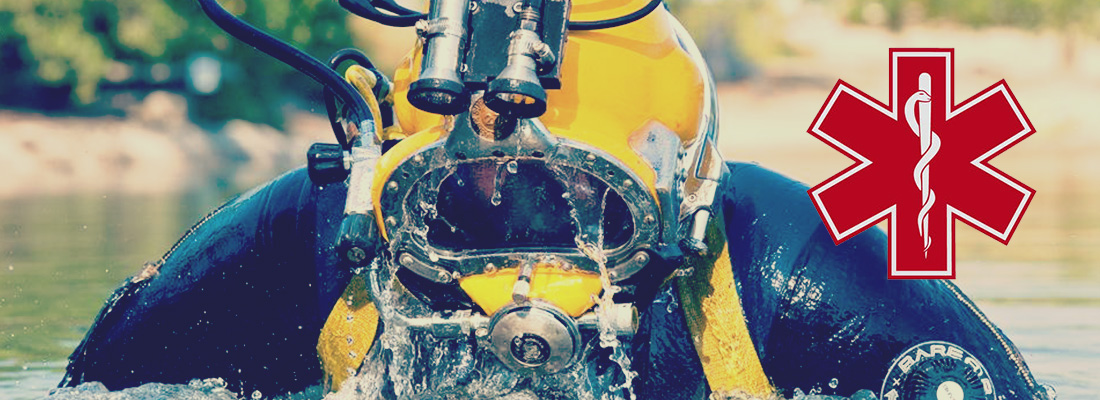Dive Medic Training
Our Dive Medic training course is specifically designed for SCUBA divers who want to advance their understanding of the diagnosis and treatment of immersion and other dive related injuries.

What is this course about?
We’re dedicated to the care of everyone, everywhere—on-shore or off.
Given the world is covered by 70% water, and million of people SCUBA dive both commercially and recreationally around the globe every single day, we’ve designed this program for anyone who wants to be able to provide pre-hospital care to injured divers.
Commercial divers, in particular, often work in off-shore locations such as on ships, oil rigs, at archaeological points of interest (such as NOAA divers), or other oceanographic sites located hundreds of miles from the nearest hospital or emergency room, which may only be accessible by boat or helicopter. In situations where divers are seriously hurt, it goes without saying that they could die unless they receive immediate care from specially trained medics familiar with immersion related injuries.
What are the perquisites for the course?
You must be 18 years or older, hold open water diver training from a recognized agency (military, governmental, PADI, NAUI, SSI, etc).
It would be helpful if you already have medical training (such as CPR, EMT, etc). Those who have no experience in pre-hospital care must complete both Phases of training. Those who have already completed EMT training (or equivalent) may proceed to Phase 2.
What you will you learn?
In-line with our goal of being able to serve patients in remote areas (see our RAMP program), this program is designed to teach divers how to save the lives of other military, commercial, and recreational divers.
Phase 1 – Basic Emergency Care Provider (Equivalent to EMT) – 210 Hours of Didactic / Lectures / Practical Exercises
The course is based on the Department of Transportation’s (DOT) EMT-Basic curriculum. It includes topics such as Introduction to Emergency Medical Care, The Human Body, Lifting and Moving Patients, Airway Management, The Initial Assessment, Vital Signs and SAMPLE History, Assessment of the Trauma Patient, Assessment of the Medical Patient, Ongoing Assessment, Communication, Documentation, General Pharmacology, Respiratory Emergencies, Cardiac Emergencies, Acute Abdominal Emergencies, Diabetic Emergencies and Altered Mental Status, Allergic Reactions, Poisoning and Overdose Emergencies, Environmental Emergencies, Behavioral Emergencies, Obstetrics and Gynecological Emergencies, Bleeding and Shock, Soft-Tissue Injuries, Musculoskeletal Injuries, Injuries to the Head and Spine, Infants and Children, Geriatric Patients, Rescue Operations, Special Operations, and Advanced Airway Management.
Phase 2 – Diver Medic – 122 Hours of Didactic / Lectures / Practical Exercises
Topics include, but are not limited to Diving Physics, Physical Examination of Divers, Differential Diagnosis of Diving Accidents, Anatomy/Physiology of the Ear and Hearing, Barotrauma (Squeeze and External Otitis), Inner Ear Barotrauma, Anatomy of the Chest, Respiratory Physiology, Pulmonary Oxygen Toxicity, Hypoxia, Carbon Dioxide Retention (Hypercapnia), Inert Gas Narcosis, Effects of Carbon Monoxide Toxicity, Breath Hold Diving, Central Nervous System Oxygen Toxicity, Advanced Physical Examination of the Chest, Pulmonary Overinflation Syndromes, Bubble Theory and Decompression Sickness, Neurological Examination, Adjunctive Therapy, Drugs and Diving, Altitude Decompression, Drowning and Near Drowning, Underwater Work Hazards such as Blasts, Shocks, Toxic Gas Exposure, and Dangerous Marine Life, CHT Preventative Medicine, Dysbaric Osteonecrosis, Insertion of IV’s, Suturing, and EKGs.

